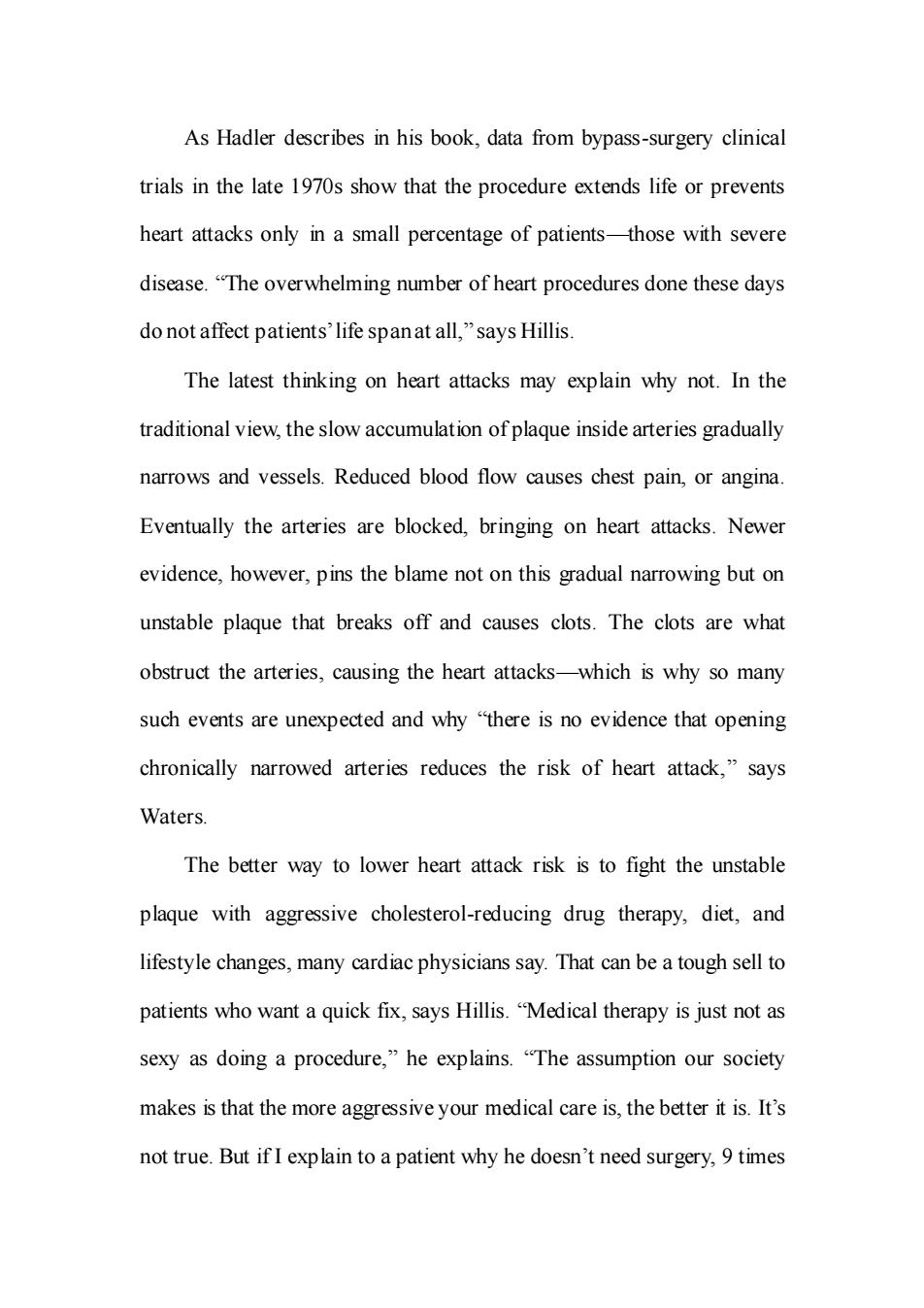正在加载图片...

As Hadler describes in his book,data from bypass-surgery clinical trials in the late 1970s show that the procedure extends life or prevents heart attacks only in a small percentage of patients-those with severe disease."The overwhelming number of heart procedures done these days do not affect patients'life spanat all,"says Hillis. The latest thinking on heart attacks may explain why not.In the traditional view,the slow accumulation ofplaque inside arteries gradually narrows and vessels.Reduced blood flow causes chest pain,or angina. Eventually the arteries are blocked,bringing on heart attacks.Newer evidence,however,pins the blame not on this gradual narrowing but on unstable plaque that breaks off and causes clots.The clots are what obstruct the arteries,causing the heart attacks-which is why so many such events are unexpected and why "there is no evidence that opening chronically narrowed arteries reduces the risk of heart attack,"says Waters. The better way to lower heart attack risk is to fight the unstable plaque with aggressive cholesterol-reducing drug therapy,diet,and lifestyle changes,many cardiac physicians say.That can be a tough sell to patients who want a quick fix,says Hillis."Medical therapy is just not as sexy as doing a procedure,"he explains."The assumption our society makes is that the more aggressive your medical care is,the better it is.It's not true.But if I explain to a patient why he doesn't need surgery,9 timesAs Hadler describes in his book, data from bypass-surgery clinical trials in the late 1970s show that the procedure extends life or prevents heart attacks only in a small percentage of patients—those with severe disease. “The overwhelming number of heart procedures done these days do not affect patients’life span at all,” says Hillis. The latest thinking on heart attacks may explain why not. In the traditional view, the slow accumulation of plaque inside arteries gradually narrows and vessels. Reduced blood flow causes chest pain, or angina. Eventually the arteries are blocked, bringing on heart attacks. Newer evidence, however, pins the blame not on this gradual narrowing but on unstable plaque that breaks off and causes clots. The clots are what obstruct the arteries, causing the heart attacks—which is why so many such events are unexpected and why “there is no evidence that opening chronically narrowed arteries reduces the risk of heart attack,” says Waters. The better way to lower heart attack risk is to fight the unstable plaque with aggressive cholesterol-reducing drug therapy, diet, and lifestyle changes, many cardiac physicians say. That can be a tough sell to patients who want a quick fix, says Hillis. “Medical therapy is just not as sexy as doing a procedure,” he explains. “The assumption our society makes is that the more aggressive your medical care is, the better it is. It’s not true. But if I explain to a patient why he doesn’t need surgery, 9 times